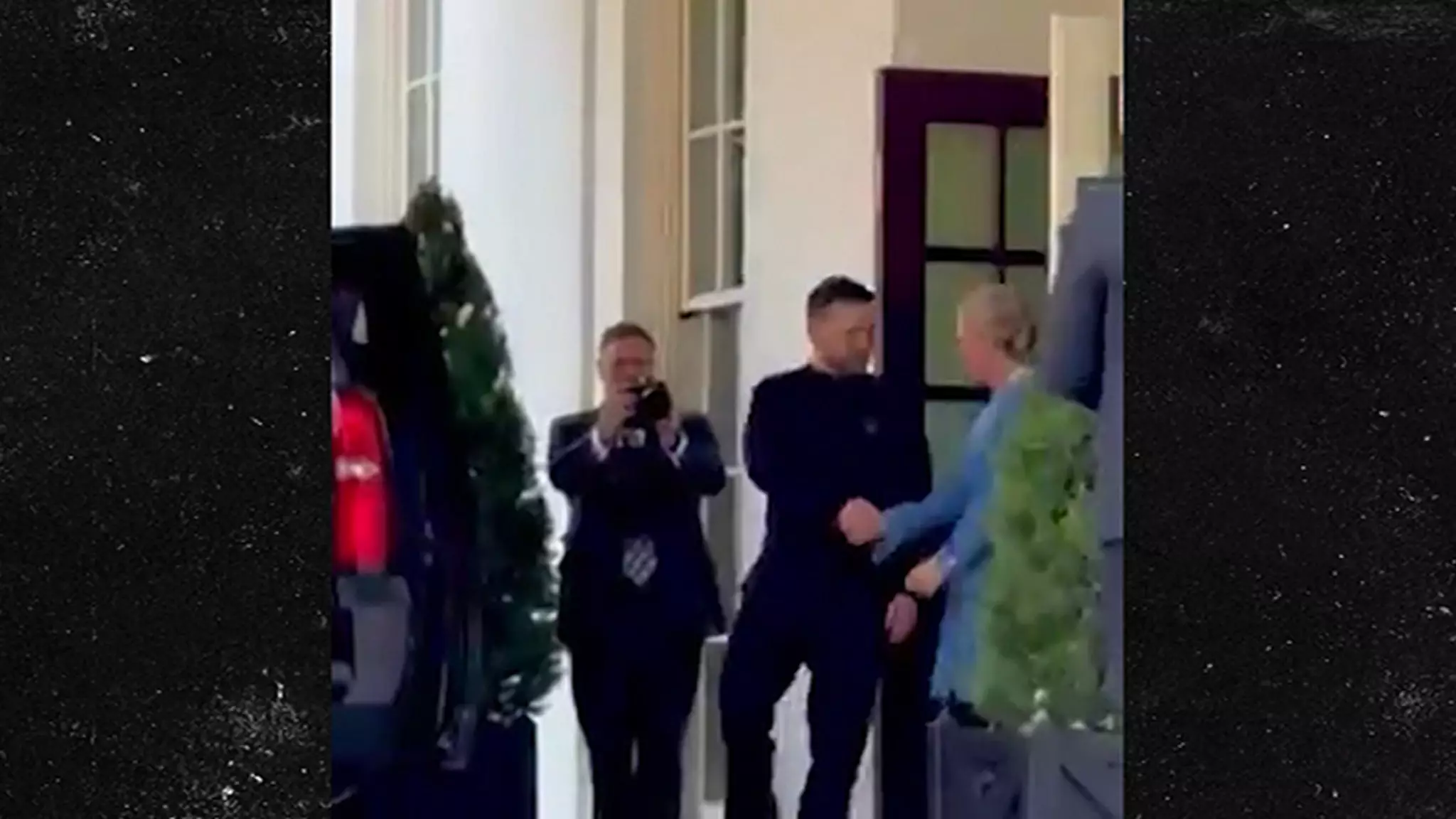In a political landscape where diplomacy often hinges on personal rapport, the recent encounter between U.S. President Donald Trump and Ukrainian President Volodymyr Zelensky highlights the perils of strained relations. Their meeting, intended to foster cooperation regarding Ukraine’s valuable resources and ongoing conflict with Russia, quickly devolved into an explosive argument. Such a public display of discord not only humiliated both leaders but also raised significant questions about the future of U.S.-Ukraine relations as the specter of war looms heavily.
Sources have indicated that tensions flared during their joint address in the Oval Office, with President Trump feeling particularly disrespected by what he perceived as Zelensky’s dismissive gestures—eye-rolls and shrugs—which he interpreted as a lack of gratitude for American assistance. This lack of decorum seemed to overshadow the primary focus of their meeting: discussions surrounding Ukraine’s rare earth minerals and its ongoing battle with Russia. The palpable discord reveals an unsettling power dynamic, where Trump’s expectations of respect clashed woefully with the distressed reality of Zelensky’s situation.
Following their confrontation, Trump took to his Truth Social platform, making it clear that he considered Zelensky unprepared for peace negotiations. He stated that the Ukrainian leader’s return to the White House depended on a genuine commitment to resolving conflict—a statement that arguably underscores a deeper issue regarding how U.S. leadership perceives the sovereignty and agency of foreign leaders.
Surprisingly, a planned lunch between the two leaders was abruptly canceled in the wake of the confrontation, with the White House press corps instead left to consume the meal intended for the leaders. This break in protocol serves as a metaphor for the breakdown in communication and trust. It underscores a significant shift in what was meant to be a strategic partnership, now diminished to a farce—complete with an empty table once reserved for diplomacy.
Zelensky, while acknowledging the undeniable support of the U.S. government and its people, faces an uphill battle not just against external aggression from Russia, but also internal friction with an unpredictable ally. His expression of gratitude on social media did little to mask the reality that his government is under unprecedented pressure, a situation exacerbated by Trump’s earlier remarks calling him a “dictator” and questioning Ukraine’s role in the war.
The confrontation at the White House is more than just a diplomatic misstep; it signals the fragility of international alliances in an increasingly polarized world. As the three-year anniversary of Russia’s invasion of Ukraine approaches, the fallout highlights not only the human cost of the war but also the critical need for sustained diplomatic engagement. Leaders around the globe watch this interaction closely, aware that the tone of cooperation can turn to discord in a matter of moments.
Ultimately, the implications of this incident extend beyond the personal conflict between two leaders; it reflects a disheartening trend in global politics where decorum is overshadowed by ego, and strategic interests are compromised by interpersonal disputes. As both nations navigate the aftermath of this encounter, the question remains: Can the U.S. and Ukraine reconcile their differences, or will this incident usher in a period of uncertainty and instability for their relationship?

